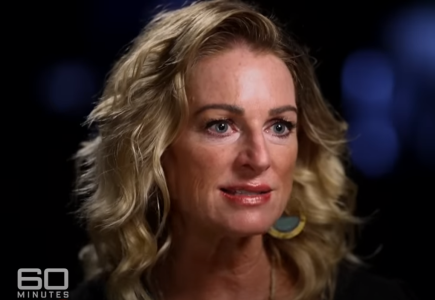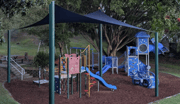Shocking twist: Medibank hack victim hit with massive $1.8 million charge
In the digital age, cybersecurity threats are a growing concern, and Australians are not immune to fraud and cybercrime.
The story of Byron Bay resident Sarah Luke, a victim of the Medibank data hack, serves as a stark reminder of the potential personal and financial devastation that can result from such breaches.
Last October, Medibank, one of Australia's leading health insurance providers, suffered a significant data breach.
Millions of Australians had their personal data exposed, including Sarah Luke. A few weeks later, Luke's PayPal account was hacked, an act she suspects was carried out by Russian cybercriminals.
The hackers, using Ms Luke's identity, engaged in rapid, unauthorised merchandise trading from brands like Adidas and the NBA.
The fallout was swift and severe. Ms Luke found herself facing multiple charges and became a defendant in two US lawsuits. The mother of four was ordered to pay a staggering $1.8 million in damages.
'I feel extremely vulnerable and violated. It's been enormously distressing actually,' Ms Luke shared with Amelia Adams in 60 Minutes.
Despite the emotional toll, she continues to fight the charges and damages.
However, the threat of cybercrime extends beyond individual victims. The Australian government and corporations are also under siege, with the potential for these attacks to pose significant threats to national security.
In response to the escalating cyber threats, Clare O'Neil was appointed Australia's first Minister of Cyber Security last year.
One of her first challenges was the DP World hack, an attack on the company responsible for 40 per cent of Australia's maritime freight and the flow of international trade.
'The DP World incident was really serious, and if truth be told, it was one that could have affected the lives of almost everyone who lives in our country,' Ms O'Neil said.
Australia is facing a new kind of warfare, one without a physical battlefield but with potentially devastating consequences. Ms O'Neil highlighted the countries of particular concern.
‘China, Russia and Iran are countries that the Australian Signals Directorate has publicly identified as those who are part of the mix here,’ she said.
Defence Minister Richard Marles echoed O'Neil's concerns, adding that a cyberattack on the historic AUKUS deal, a $300 billion nuclear submarine agreement, could have catastrophic consequences.
'What defines submarine capability is stealth. If they can be detected, there is literally no point to them,' he said.
While cybercrime may seem insidious and unstoppable, Ms O'Neil believes that Australians can take steps to protect themselves.
'I don't think we should accept that we're going to be a nation of cybercrime victims,' she stated.
'One thing I want Australians to understand is you can vastly reduce the risk of cybercrime by doing simple things, like not using the same password for all our sites and using two-factor authentication when necessary,' she added.
Unfortunately, for victims like Ms Luke, these warnings came too late.
'It's an enormous point of stress and anxiety. I go to sleep at night not knowing if there's going to be a knock on the door and some heavy people are going to take me away,' Ms Luke said.
You can watch the 60 Minutes coverage of this story here:
Understanding Cybersecurity and How to Protect Yourself
Cybersecurity is the practice of protecting computers, servers, mobile devices, electronic systems, networks, and data from digital attacks. These attacks are usually aimed at accessing, changing, or destroying sensitive information, extorting money from users, or interrupting normal business processes.
Implementing effective cybersecurity measures is particularly challenging today because there are more devices than people, and attackers are becoming more innovative. A successful cybersecurity approach has multiple layers of protection spread across the computers, networks, programs, or data one intends to keep safe.
For individuals, the key to effective cybersecurity is understanding the risks and implementing simple measures to protect yourself. These include using strong, unique passwords for each online account, enabling two-factor authentication where possible, keeping software and operating systems updated, and being wary of suspicious emails or messages that could be phishing attempts.
According to the Australian Competition and Consumer Commission (ACCC), tens of millions of dollars are lost to phishing scams each year in Australia alone–and the figure is still on the rise. You can read this article to learn more about phishing scams.
You can also watch our 6-part video course on how to spot online scams. You can watch Part 1 here.
While the threat of cybercrime can seem overwhelming, by taking these steps, you can significantly reduce your risk and ensure that you don't become the next victim.

What are your thoughts on this issue, members? Have you taken steps to protect yourself from cybercrime? Share your experiences and tips in the comments below.
The story of Byron Bay resident Sarah Luke, a victim of the Medibank data hack, serves as a stark reminder of the potential personal and financial devastation that can result from such breaches.
Last October, Medibank, one of Australia's leading health insurance providers, suffered a significant data breach.
Millions of Australians had their personal data exposed, including Sarah Luke. A few weeks later, Luke's PayPal account was hacked, an act she suspects was carried out by Russian cybercriminals.
The hackers, using Ms Luke's identity, engaged in rapid, unauthorised merchandise trading from brands like Adidas and the NBA.
The fallout was swift and severe. Ms Luke found herself facing multiple charges and became a defendant in two US lawsuits. The mother of four was ordered to pay a staggering $1.8 million in damages.
'I feel extremely vulnerable and violated. It's been enormously distressing actually,' Ms Luke shared with Amelia Adams in 60 Minutes.
Despite the emotional toll, she continues to fight the charges and damages.
However, the threat of cybercrime extends beyond individual victims. The Australian government and corporations are also under siege, with the potential for these attacks to pose significant threats to national security.
In response to the escalating cyber threats, Clare O'Neil was appointed Australia's first Minister of Cyber Security last year.
One of her first challenges was the DP World hack, an attack on the company responsible for 40 per cent of Australia's maritime freight and the flow of international trade.
'The DP World incident was really serious, and if truth be told, it was one that could have affected the lives of almost everyone who lives in our country,' Ms O'Neil said.
Australia is facing a new kind of warfare, one without a physical battlefield but with potentially devastating consequences. Ms O'Neil highlighted the countries of particular concern.
‘China, Russia and Iran are countries that the Australian Signals Directorate has publicly identified as those who are part of the mix here,’ she said.
Defence Minister Richard Marles echoed O'Neil's concerns, adding that a cyberattack on the historic AUKUS deal, a $300 billion nuclear submarine agreement, could have catastrophic consequences.
'What defines submarine capability is stealth. If they can be detected, there is literally no point to them,' he said.
While cybercrime may seem insidious and unstoppable, Ms O'Neil believes that Australians can take steps to protect themselves.
'I don't think we should accept that we're going to be a nation of cybercrime victims,' she stated.
'One thing I want Australians to understand is you can vastly reduce the risk of cybercrime by doing simple things, like not using the same password for all our sites and using two-factor authentication when necessary,' she added.
Unfortunately, for victims like Ms Luke, these warnings came too late.
'It's an enormous point of stress and anxiety. I go to sleep at night not knowing if there's going to be a knock on the door and some heavy people are going to take me away,' Ms Luke said.
You can watch the 60 Minutes coverage of this story here:
Understanding Cybersecurity and How to Protect Yourself
Cybersecurity is the practice of protecting computers, servers, mobile devices, electronic systems, networks, and data from digital attacks. These attacks are usually aimed at accessing, changing, or destroying sensitive information, extorting money from users, or interrupting normal business processes.
Implementing effective cybersecurity measures is particularly challenging today because there are more devices than people, and attackers are becoming more innovative. A successful cybersecurity approach has multiple layers of protection spread across the computers, networks, programs, or data one intends to keep safe.
For individuals, the key to effective cybersecurity is understanding the risks and implementing simple measures to protect yourself. These include using strong, unique passwords for each online account, enabling two-factor authentication where possible, keeping software and operating systems updated, and being wary of suspicious emails or messages that could be phishing attempts.
According to the Australian Competition and Consumer Commission (ACCC), tens of millions of dollars are lost to phishing scams each year in Australia alone–and the figure is still on the rise. You can read this article to learn more about phishing scams.
You can also watch our 6-part video course on how to spot online scams. You can watch Part 1 here.
While the threat of cybercrime can seem overwhelming, by taking these steps, you can significantly reduce your risk and ensure that you don't become the next victim.
Key Takeaways
- Byron Bay native Sarah Luke was a victim of the Medibank data hack, and subsequently, her PayPal account was hacked.
- Following unauthorised transactions made in her name, Luke was charged and ordered to pay $1.8 million in damages in two US lawsuits.
- The increasing threats of cyberattacks on the Australian government and corporations have raised concerns for national security.
- Clare O'Neil, Australia's first Minister of Cyber Security, advised Australians to take simple preventative measures like not using the same password for all sites and using two-factor authentication.
What are your thoughts on this issue, members? Have you taken steps to protect yourself from cybercrime? Share your experiences and tips in the comments below.








